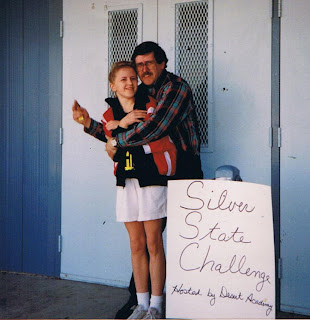
At the end of last week, one of my devoted readers wrote me about her frustrations.
In response to Friday's motivational quote regarding persistance, she was honest about feeling discouraged with her recent lack of progress.
Check out her comment HERE, at the end of the post.
Well, our frustrated friend's woes led me to today's topic.
I want to talk about how to keep progress going.
I want to discuss what is necessary to keep physical transformation advancing forward.
I want to delve into the ways in which we can stick to the straight and narrow in order to get the results we crave.
When attempting to reach a goal in the fitness world... whether it's to put on some lean muscle mass, to shed excess fat, or to accomplish a certain aspect of performance... you need to follow a certain formula.
And that formula will help you discover a method that works best for YOU.
Because...
Each and every person is different. We have different structures, genetics, responses to food, metabolisms, capacity for recovery, and the list goes on!
You can get advice from many people about many different nutrition and exercise methods that actually do lead to results... but not every method works for every person (that's why there are so many valid ones!).
The million dollar question YOU need to ask is...
'What works for ME?'
Here are some steps to find out the answer:
STEP 1: Choose a solid Plan
For nutrition, find an uncomplicated eating plan that is based on sound, scientific principles AND that has plenty of testimonial proof.
For exercise, find a training program that is based on compound movements and relatively high intensity levels.
STEP 2: Implement that Plan & Stick to it!
Consistency is key in order for a nutrition or exercise program to work. And of course, if you really want great results, you need to implement both nutrition AND exercise!
So, find your programs, then follow them as closely as possible. Don't change anything! Otherwise, you won't be following the plan - and you won't know why it's not working...
STEP 3: Record your Adherence
We've got busy lives. We can't remember everything we eat. And we can't remember if we worked out last Thursday. Keep a journal of your workouts, your workout frequency, your weights and reps. Keep track of your meals... or at least whether you indeed adhered to the type of meals that your plan requires. Just take the time to write it down. And you won't have to guess.
STEP 4: Measure your Progress
If you don't measure before, then follow up with the same measurements after, how will you know if your plan is working??
Use the scale, a tape measure, a fitness professional that can measure your body composition with skinfold calipers. The least amount of time that I would recommend you wait before checking results... 2 weeks.
STEP 5: If results happen, stick to the plan... If NO results, change only one variable!!
This is THE MOST important step.
Don't change anything if you are getting results!!
But, if you're like my aggravated reader, and you're not getting results (or they're coming super duper slow), change something! But make sure to only change ONE variable. That way, you can measure if that one variable is actually the thing that was halting your progress.
For instance, maybe you keep your exercise program the same, but you decrease your starchy carbs and increase your veggie intake. Or maybe you have to increase your calories because you're eating too little. Or maybe you keep your food intake the same and add an extra day of intervals to your program.
Change one thing. Then stick to it for two weeks.
It may take a little while for you to find the exact formula that works for you. But if you really want the results that you crave, the extra time is totally worth it.
Good luck, fit crew!!































